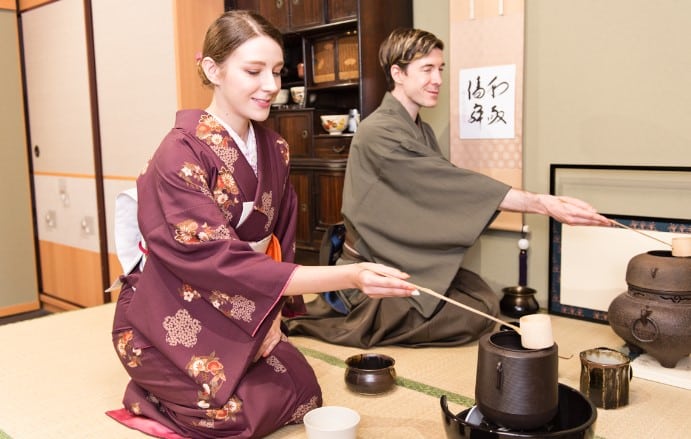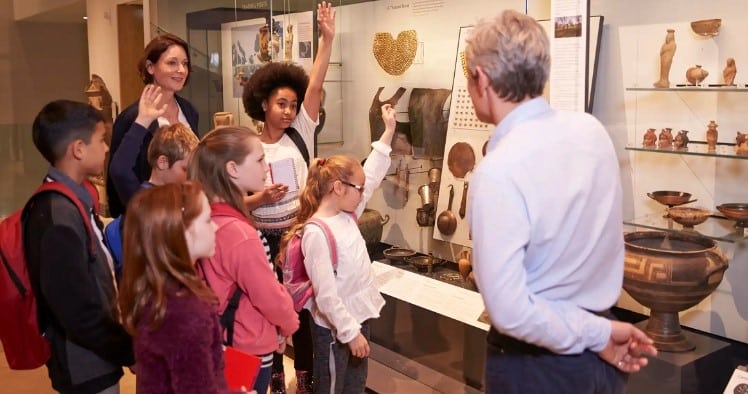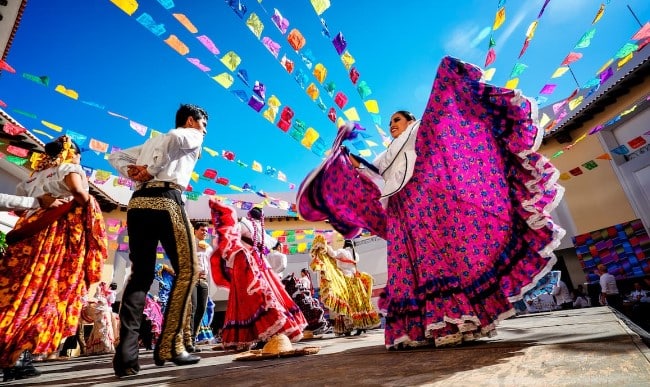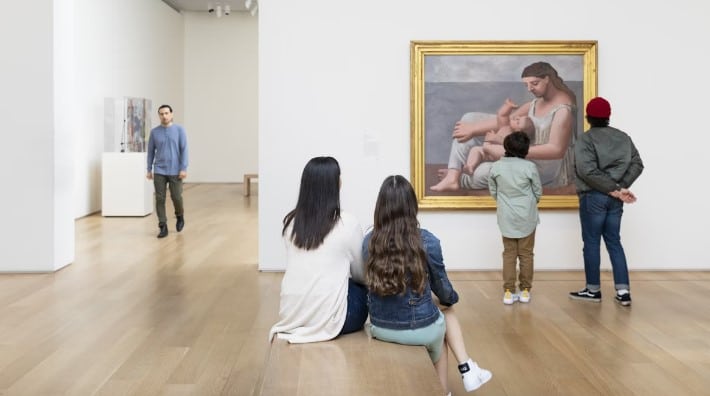The Japanese Tea Ceremony Experience, known as Chanoyu, Sado, or the Way of Tea, is more than just a method of preparing and serving tea; it is a profound cultural and spiritual practice that embodies the essence of Japanese aesthetics and philosophy.
This ritualistic practice, which dates back over 1000 years, is a delicate balance of art, etiquette, and mindfulness.
It offers a unique opportunity to experience Japan’s rich cultural heritage and provides a moment of tranquility in a fast-paced world.
Participating in a Japanese tea ceremony is not merely about drinking tea; it is about engaging in a meditative process that brings together the senses and the soul.
The ceremony reflects the values of harmony, respect, purity, and tranquility, which are the core principles of Zen Buddhism and Japanese culture. To find out, please read the article provided by the Globetraveo site
The History and Significance of the Japanese Tea Ceremony
The Japanese tea ceremony, also known as “Chanoyu,” has a rich history dating back to the 9th century when tea was first introduced to Japan from China.
Over the centuries, it evolved into a deeply spiritual and cultural practice, embodying the principles of harmony, respect, purity, and tranquility.
The ceremony became more refined during the 16th century under the influence of tea master Sen no Rikyū, who emphasized the simplicity and mindfulness that are now integral to the ritual.
Today, the Japanese tea ceremony is not just about drinking tea but is a profound cultural experience that connects participants to Japanese tradition and philosophy.
The origins of the Japanese Tea Ceremony can be traced back to the early 9th century, when tea was first introduced to Japan by Buddhist monks returning from China.
Initially, tea was consumed primarily for its medicinal properties and was a privilege of the elite.
It wasn’t until the 12th century that the practice of tea drinking began to evolve into a ceremonial art under the influence of Zen Buddhism.
Zen Influence and the Evolution of Tea Ceremony
Zen Buddhism played a crucial role in shaping the Japanese Tea Ceremony. The Zen monks viewed tea drinking as a form of meditation, a way to cultivate mindfulness and spiritual awareness.
The simplicity, restraint, and discipline of Zen philosophy are reflected in the meticulous preparation and presentation of the tea.
By the 16th century, the tea ceremony had become an established cultural practice, largely due to the efforts of Sen no Rikyū, the most famous tea master in Japanese history.
Rikyū emphasized the principles of wabi-sabi, which values simplicity, imperfection, and the beauty of the natural world. He introduced the concept of wabi-cha, a style of tea ceremony that highlights the rustic and humble aspects of the practice.
Cultural and Social Significance
The Japanese Tea Ceremony is not just a solitary ritual; it is a social and cultural event that fosters connection and communication among participants.
The host and guests engage in a carefully choreographed series of actions that reflect respect, humility, and mindfulness.
Every aspect of the ceremony, from the selection of the tea utensils to the arrangement of the tea room, is designed to create a serene and contemplative environment.
The tea ceremony also serves as a medium for artistic expression. The tea utensils, including the tea bowl (chawan), tea caddy (natsume), and tea scoop (chashaku), are often works of art crafted by skilled artisans.
Ttea room itself is a place of aesthetic beauty, with carefully chosen decorations, such as scrolls and flower arrangements, that reflect the season and the theme of the gathering.
You can also read : Cultural Festivals in Mexico: Celebrate Tradition & Vibrance
The Benefits of Experiencing a Japanese Tea Ceremony
Engaging in a Japanese tea ceremony offers numerous benefits, both on a personal and cultural level:
- Cultural Immersion: The tea ceremony provides a deep and intimate understanding of Japanese culture, its values, and its aesthetics. It is an opportunity to experience firsthand the beauty of traditional Japanese customs and practices.
- Mindfulness and Relaxation: The slow and deliberate pace of the tea ceremony encourages participants to be fully present in the moment, promoting mindfulness and relaxation. It is a chance to disconnect from the stresses of daily life and reconnect with oneself.
- Aesthetic Appreciation: The tea ceremony is a celebration of Japanese aesthetics, from the design of the tea utensils to the arrangement of the tea room. It is an opportunity to appreciate the beauty of simplicity, subtlety, and imperfection.
- Social Connection: The tea ceremony fosters a sense of connection and community among participants. It is a shared experience that emphasizes the importance of hospitality, respect, and mutual appreciation.
- Spiritual Reflection: For those interested in spirituality, the tea ceremony offers a form of moving meditation that aligns with the principles of Zen Buddhism. It is an opportunity for introspection and spiritual growth.
You can also read : Book Oktoberfest Tours in Germany: Celebrate with the Best
Real-World Examples of Japanese Tea Ceremony Experiences
1. Tokyo Tea Experience
Located in the bustling heart of Tokyo, the Tokyo Tea Experience offers a serene escape into the world of traditional Japanese tea culture.
Set in authentic tea houses that transport you back in time, this experience is guided by a tea master who carefully explains each step of the ceremony, providing insights into its history and significance. Whether you are a first-time visitor or a seasoned traveler, the Tokyo Tea Experience offers an accessible and enriching cultural immersion.
The Tokyo Tea Experience not only provides a glimpse into Japan’s rich tea heritage but also allows participants to savor premium matcha, enhancing the overall sensory journey.
As you enjoy the calming atmosphere of the tea house, you will learn about the various types of tea, such as sencha and gyokuro, which are celebrated for their unique flavors and health benefits.
This cultural activity is perfect for those seeking unique things to do in Tokyo, as it combines relaxation with education, making it a must-try for anyone looking to deepen their understanding of Japanese traditions.
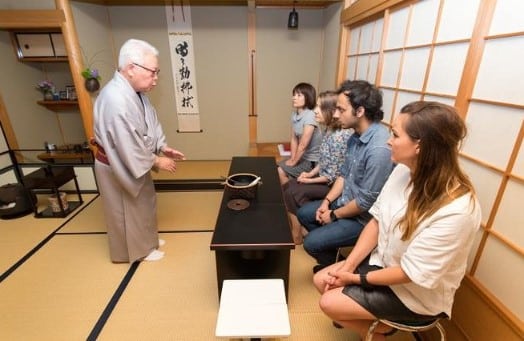
- Where to Book: Book Tokyo Tea Experience
- Price: Approximately $50 per person
- Features: Traditional tea house setting, English-speaking guides, small group sizes for personalized experiences.
- Pros: Conveniently located in Tokyo, offering an authentic cultural experience with English-speaking guidance, making it ideal for international visitors.
- Cons: May be crowded during peak tourist seasons, requiring advance booking to secure a spot.
2. Japanese Tea Ceremony in Kyoto
- Description: Kyoto, often regarded as the cultural heart of Japan, offers some of the most authentic and traditional tea ceremony experiences. These ceremonies are often held in historic tea houses or temples, surrounded by serene gardens that enhance the meditative nature of the practice. With the option to don traditional kimonos, participants can fully immerse themselves in the historical and cultural atmosphere of Kyoto.
- Where to Book: Book Kyoto Tea Ceremony
- Price: Approximately $60 per person
- Features: Historic tea house settings, traditional kimono rentals, guided tours of the tea house gardens.
- Pros: Offers a rich historical context, beautiful and serene settings, and an authentic experience of Japanese culture.
- Cons: Higher price point and may require advance reservations during busy tourist seasons, particularly in spring and autumn.
3. Zen Tea Ceremony Experience in Japan
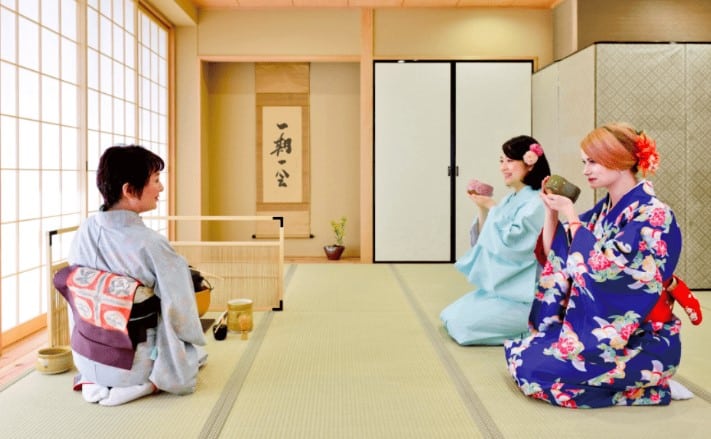
- Description: For those seeking a deeper spiritual connection, the Zen Tea Ceremony Experience focuses on the meditative and contemplative aspects of the tea ceremony. Conducted in tranquil environments, often in temples or secluded tea rooms, this experience emphasizes mindfulness, presence, and the spiritual connection between the host and guests. The Zen Tea Ceremony is ideal for individuals interested in exploring the spiritual dimensions of Japanese culture.
- Where to Book: Book Zen Tea Ceremony
- Price: Approximately $70 per person
- Features: Meditation session included, emphasis on Zen philosophy, small and intimate group settings.
- Pros: Provides a deeply spiritual experience, perfect for those interested in Zen Buddhism and meditation, with a calming and reflective atmosphere.
- Cons: May not be suitable for those looking for a more casual or tourist-oriented experience.
4. Private Japanese Tea Ceremony
- Description: A private Japanese tea ceremony offers a more personalized and intimate experience, often conducted in a private tea room or even within the comfort of your accommodation. This option is perfect for those who wish to delve deeper into the intricacies of the tea ceremony, with one-on-one guidance from a tea master. It is also a great option for couples or small groups seeking an exclusive cultural experience.
- Where to Book: Book Private Tea Ceremony
- Price: Approximately $100 per person
- Features: Exclusive and personalized setting, flexible scheduling, personalized guidance from a tea master.
- Pros: Highly personalized experience with more interaction with the tea master, allowing for a deeper understanding of the ceremony, and flexibility in scheduling.
- Cons: Higher cost and limited availability, particularly in less tourist-heavy areas.
5. Japanese Tea Ceremony and Kimono Experience
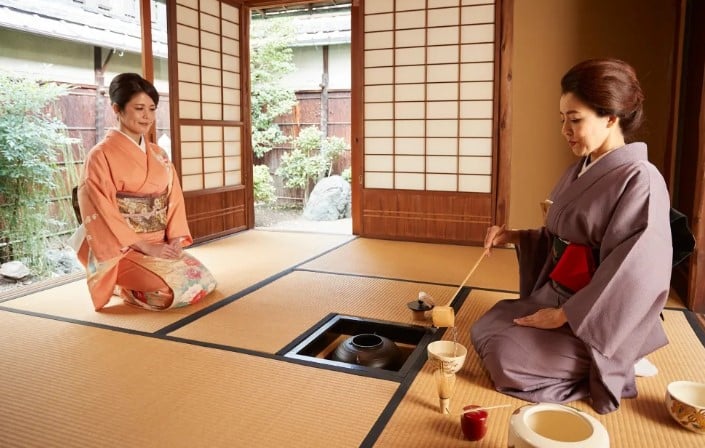
- Description: Combining the tea ceremony with a traditional kimono experience offers a complete immersion into Japanese culture. Participants are dressed in beautiful, authentic kimonos and then guided through the tea ceremony. which is often conducted in historic tea houses or traditional Japanese gardens. This experience is perfect for those looking to create lasting memories and capture the beauty of Japanese tradition in photographs.
- Where to Book: Book Tea Ceremony and Kimono Experience
- Price: Approximately $120 per person
- Features: Kimono rental and dressing service, professional guidance through the tea ceremony, and photo opportunities in a traditional setting.
- Pros: Enhanced cultural experience with the addition of wearing a kimono, excellent for photo opportunities. and provides a comprehensive cultural immersion.
- Cons: Higher price point and limited to specific locations that offer kimono services, may require advance booking during peak seasons.
You can also read : Experience Indigenous Tours in Australia: Connect with Culture
Comparison of Japanese Tea Ceremony Experiences
When choosing a Japanese tea ceremony experience, it’s important to consider several factors to ensure that the experience meets your expectations and interests:
- Location: If you are looking for an easily accessible experience, Tokyo offers numerous options within the city, catering to both locals and tourists. However, if you are interested in a more historical and culturally rich experience. Kyoto is the ideal location with its numerous historic tea houses and temples. For those seeking a spiritual experience, the Zen Tea Ceremony outside the main cities provides a more tranquil and meditative environment.
- Price: The cost of a Japanese tea ceremony experience can vary significantly based on the location, the inclusiveness of the experience, and whether it is a private or group session. Prices typically range from $50 to $120 per person. Group experiences are generally more affordable, while private sessions offer a more personalized and intimate experience at a higher cost.
- Features: Each tea ceremony experience offers unique features that cater to different interests. For example, the Zen Tea Ceremony focuses on meditation and spirituality, making it ideal for those interested in Zen Buddhism. The Tea Ceremony and Kimono Experience, on the other hand, provides a comprehensive cultural immersion, including the wearing, of a traditional kimono, which is perfect for those looking for a more visual and interactive experience.
- Experience Level: Whether you are new to Japanese culture or have a deep interest in traditional practices, there is a tea ceremony experience that suits your level of interest. Beginners might enjoy the more guided, tourist-friendly options in Tokyo, where the ceremony is explained in detail in English. For those with a deeper understanding or interest in Japanese culture. the more traditional and historical settings in Kyoto or the Zen-focused ceremonies offer a richer and more immersive experience.
You can also read : Master French Cuisine with Cooking Classes in Paris
How to Book and Where to Buy
Booking a Japanese tea ceremony experience can be done through various online. platforms. that specialize in cultural experiences, such as Viator, Airbnb Experiences, and Japanican.
It is also possible to book directly with tea houses or cultural centers that offer tea ceremonies. Prices typically range from $50 to $120 per person, depending on the type of experience and the location.
When booking a Japanese tea ceremony experience, it’s important to research the type of ceremony you’re interested in—whether it’s a traditional, formal tea ceremony or a more casual, introductory experience.
Platforms like Viator, Airbnb Experiences, and Japanican often provide detailed descriptions and reviews, helping you choose the right experience based on your preferences.
- Book Tokyo Tea Experience
- Book Kyoto Tea Ceremony
- Book Zen Tea Ceremony
- Book Private Tea Ceremony
- Book Tea Ceremony and Kimono Experience
Use Case: Why People Need to Experience a Japanese Tea Ceremony
Participating in a Japanese tea ceremony is an essential experience for anyone interested in Japanese culture, history, and aesthetics.
It offers an opportunity to engage in a practice that has been refined. over centuries. reflecting the core values of Japanese society, including harmony, respect, purity, and tranquility.
The meticulous preparation of matcha tea, combined with the serene setting, offers a unique opportunity for mindfulness and reflection.
For travelers and cultural enthusiasts seeking immersive Japanese cultural experiences or traditional tea ceremonies, this ritual is a must-try activity that embodies the essence of Japan’s artistic and social values.
Cultural Enrichment:
For tourists, the tea ceremony offers a deep dive into. the heart of Japanese culture, providing insights into traditional. customs, etiquette, and aesthetics that are unique to Japan. It is a meaningful way to connect with the country’s history and cultural heritage.
For tourists, the tea ceremony offers a deep dive into the heart of Japanese culture, providing insights into traditional customs, etiquette, and aesthetics that are unique to Japan. It is a meaningful way to connect with the country’s history and cultural heritage.
Additionally, participating in an authentic tea ceremony not only enhances your travel experience but also fosters a greater appreciation for Japanese traditions and cultural practices.
Mindful Practice:
For those interested in mindfulness and meditation, the tea ceremony offers a unique way to practice these disciplines. The slow, deliberate pace of the ceremony encourages participants to focus on the present moment, promoting relaxation and mental clarity.
Artistic Appreciation:
The tea ceremony is a celebration of Japanese artistry. from the design of the tea utensils to the architecture of the tea room. It offers an opportunity to appreciate the subtle beauty of Japanese design, which values simplicity, natural materials, and understated elegance.
Social Interaction:
The tea ceremony is also a social event that emphasizes hospitality and the relationship between host and guest. It is an opportunity to engage in a shared experience that fosters mutual respect and appreciation.
Personal Growth:
Experiencing a Japanese tea ceremony can be a transformative event that promotes self-reflection and personal growth. The careful, intentional movements and attention to detail required during the ceremony encourage. a deeper awareness of one’s actions and surroundings, cultivating a sense of mindfulness that can be applied to everyday life.
Cultural Diplomacy:
For those interested in cultural exchange. participating in a tea ceremony offers a unique way to engage with Japanese culture on a deeper level. It provides an opportunity for cross-cultural dialogue, allowing participants to learn from Japanese traditions while sharing their own cultural perspectives.
FAQ
1. What should I wear to a Japanese tea ceremony?
- Participants are usually encouraged to wear modest, comfortable clothing. Traditional tea ceremonies may. also offer the option to wear a kimono, which is often provided as part of the experience. It’s important to dress appropriately as the tea room is often a sacred space.
2. How long does a Japanese tea ceremony last?
- The duration of a Japanese tea ceremony can vary, but a typical session lasts about 45 minutes to an hour. Some extended ceremonies, which include a meal or additional cultural activities, may last up to two hours.
3. Can children participate in a Japanese tea ceremony?
- Yes, children can participate in a Japanese tea ceremony, although it is recommended. that they are able to sit quietly and follow the instructions of the tea master. Some tea houses may offer specific ceremonies tailored to younger audiences.
